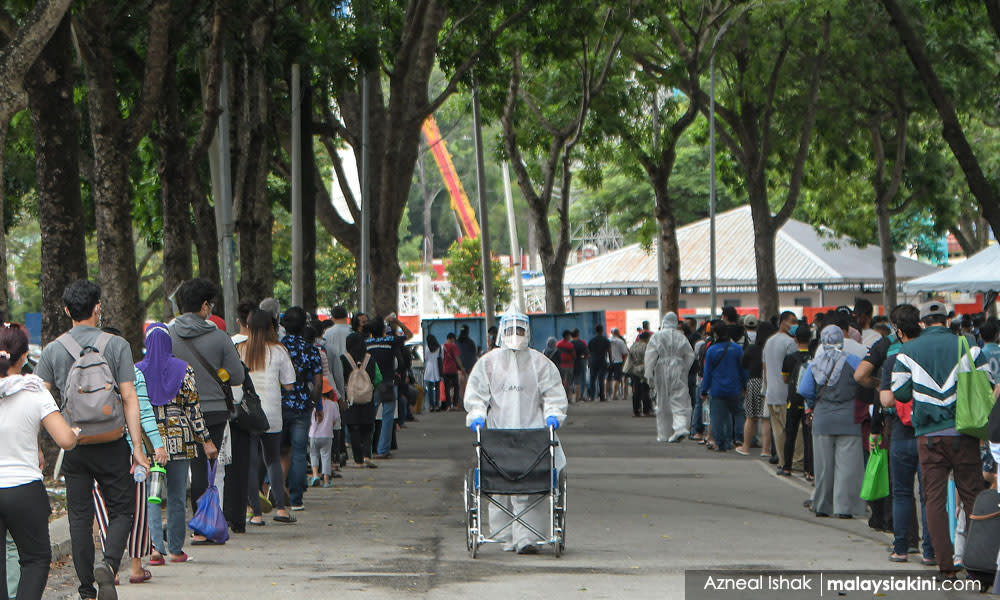Oxford study finds the vaccinated less likely to spread Covid

Full vaccination against Covid-19 could still protect people around the vaccinated individual even if a breakthrough infection with the Delta variant occurs, but there are signs of that protection waning after several months.
The finding may alleviate some concern raised in earlier studies that suggested that vaccinated people could be as contagious as unvaccinated people.
According to an analysis of contact tracing data in England, people fully vaccinated with the Pfizer vaccine are 65 percent less likely than unvaccinated people to pass on the disease to others following a breakthrough infection.
However, the effect is much diminished compared to the earlier Alpha variant, where the vaccine reduced the risk of transmission by 82 percent.
The AstraZeneca vaccine appeared less effective in blocking disease transmission. Full vaccination reduced the risk of Alpha transmission 63 percent, and Delta transmission 36 percent.
Evidence for the difference between the two vaccines, however, is considered “weak” because there is not enough data to see a clear-cut difference.
The figures do not include the vaccines’ modest effects in reducing the risk of becoming infected in the first place, which has been shown in several previous studies including those with the Delta variant.
The analysis was conducted by a team based mainly at Oxford University and was funded by the UK government. Their paper was posted on the preprint server medRxiv on Wednesday before being peer-reviewed.
It includes 99,597 index cases who undergone RT-PCR testing between Jan 2 and Aug 2, and 151,821 of their contacts. The date of the test is used as a proxy for determining whether they were infected with Alpha variant or the Delta variant. However, 12,657 contacts (8.3 percent) were excluded from the analysis due to incomplete data.
Its findings echo those of a smaller study conducted by researchers at the Guangdong Provincial Centre for Disease Control and Hong Kong University, based on contact tracing data of a Delta variant outbreak in Guangdong in May.
They reported that full vaccination with the inactivated virus vaccines used there (mainly those from Sinovac and Sinopharm) had reduced the risk of passing on the disease to close contacts by 65 percent.
This study is also yet to be peer-reviewed and was uploaded to the same pre-print server on Aug 13.
An evolving picture
Previously, early studies of people infected with the Delta variant had found that vaccinated people and unvaccinated people harboured similarly high amounts of virus in their noses and throats, as indicated by their cycle threshold values (Ct values) when undergoing RT-PCR tests.
This had raised concern in July that vaccinated people could be just as contagious as unvaccinated people once they become infected with the Delta variant, as the low Ct values are loosely correlated with high viral loads, which in turn is related to higher transmission risk.
This is in contrast with earlier variants where even a single vaccine dose cuts the risk of transmission up to a half.
However, the Ct value is only a crude proxy for viral load because it cannot distinguish between a “live” infectious virus and one that has already been killed and is incapable of causing an infection.
In addition, further studies have since replicated the initial findings while adding more nuance to the picture.
Among others, a study in Singapore found that while Ct values for vaccinated and unvaccinated people were initially just as low (suggesting a high viral load), vaccinated people were able to clear the infection more rapidly and Ct values are markedly better than unvaccinated people after a week and beyond.

Meanwhile, researchers in the Netherlands had attempted to grow the virus using swab samples collected from vaccinated and unvaccinated healthcare workers – which is a way for determining whether the virus is still viable and infectious.
They found that - when comparing similar viral loads - they had less success growing the virus from samples collected from vaccinated individuals than unvaccinated ones.
This suggests that more of the virus (but not all) in a vaccinated individual are likely to be “dead” compared to an unvaccinated individual with a similar viral load.
However, interpreting the Netherlands study is complicated by its small size, and the fact that most of the unvaccinated cases in the study come from an earlier period where the D614G strain dominated, compared to vaccinated cases that came later when the Delta variant was circulating.
This meant the study was essentially comparing unvaccinated people infected with the D614G strain versus vaccinated people infected with the Delta variant – not quite an “apples-to-apples” comparison.

A case for booster shots?
The Oxford researchers also attempted to assess how long the reduction in Covid-19 transmission lasted after receiving the second dose of the vaccines.
They found that both the Pfizer and AstraZeneca vaccines’ ability to prevent transmission declined at a similar rate.
However, since the AstraZeneca vaccine is less able to prevent transmission in the first place, its recipients appear to be just as infectious as their unvaccinated counterparts three months after the second dose.
The effect of the Pfizer vaccine is also substantially reduced by this point, but still retains some reduction in transmission.

“The Delta variant has spread globally and caused resurgences of infection even in the setting of high vaccination coverage. Increased onward transmission from individuals who become infected despite vaccination is an important reason for its spread.
“Booster vaccination campaigns being considered and implemented are likely to help control transmission as well as preventing infections,” the researchers suggested.


